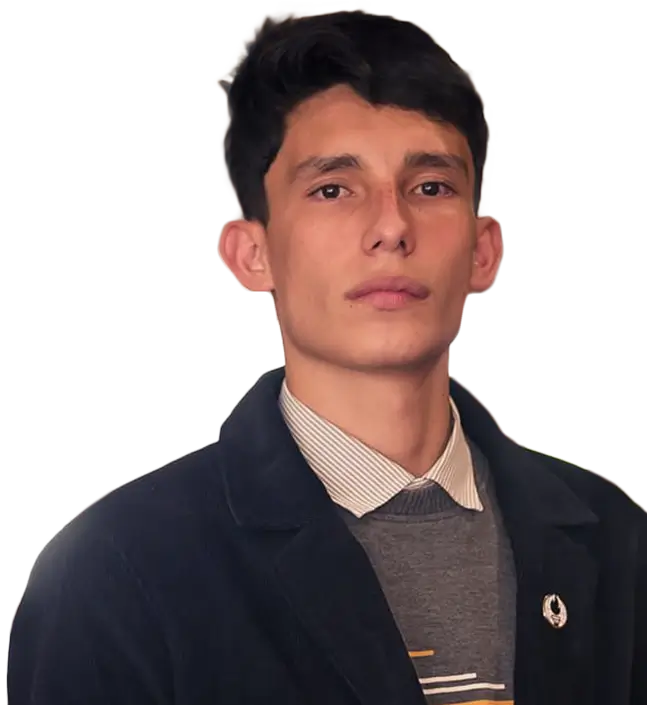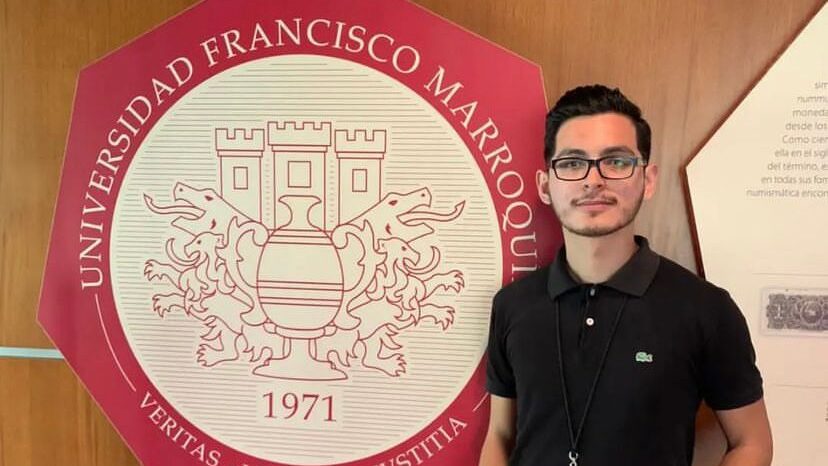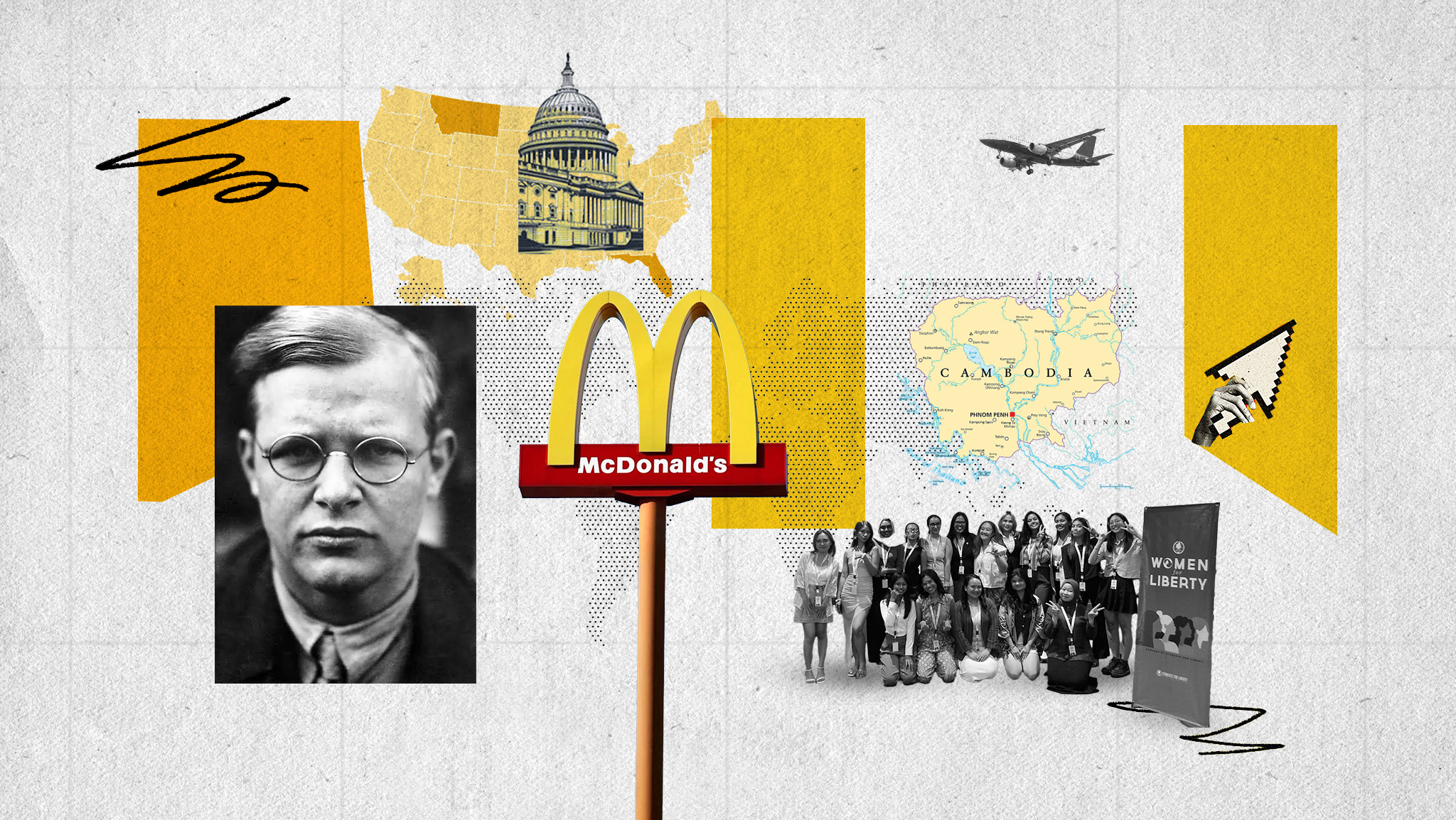Editor’s Note: The following is a translation of an essay by Omar Ramirez, from SFL Venezuela. It showcases a wisdom beyond his years — but also an astute, fresh way of seeing the seemingly mundane world — that Students For Liberty helped foster. Make sure you also watch the full video about how his near-death experience changed his outlook on life. -Trevor Kraus
When playing the game Minecraft, you appear at a random point on a map and must gather resources, build a shelter, and travel to a parallel dimension and destroy the dragon that guards it. Mining, farming, and building are generally the ways to progress in the game, though you must also face monsters that try to kill you (beware of Creepers; they explode and could destroy your house).
Those who have played it, and even those who haven’t but who read this article, will agree with me that the game helps us understand and demonstrate how the following four principles of liberalism are crucial for progressing in real life.
1. Original Appropriation: How We Obtain Resources and Claim What Belongs to No One
At the beginning, the first thing you should do is get wooden planks by breaking trees.
With the logs, you “craft” (in the game’s jargon, create) wooden planks, with which you can make two essential things: a workbench and sticks. You can then make a pickaxe and search for stone to make a furnace and a house.

But what gives you the right to the stone or wood you used to build your house? It’s the process of work done to obtain it — the labor you put into the wood, stone, and iron — that gives you ownership over them. This is called “original appropriation,” and it is the process by which someone, through their labor, claims what previously belonged to no one.
Original appropriation addresses a problem in human productive and commercial relations: “With whose permission did you take that? How do you know it belongs to you if you took it from an orange tree?”
Well, the labor done to extract a resource that belongs to no one grants ownership to someone — the work of climbing the tree, the ingenuity used to create the tools are imprinted on the resource and give us the right over it.
And that leads us to the idea of …
2. Private Property
Private property is the most essential recognition we can give to other individuals, acknowledging the fruit of their effort, the exchange of it, and their honesty in obtaining it by exchanging goods and services, not by force. Systems that do not respect private property are not only illegitimate but also highly inefficient, as violating property removes the primary incentive for any worker or entrepreneur to produce: to earn a profit.
So, back to the game: When you start building your house, you can use planks and sticks to craft fences to mark your land. You have a choice in materials, type of wood, doors, whether to use stone or clay, whether to decorate the entrance, the color of the windows, and so on.
This sequence of decisions — to make and unmake, with a scarce resource (one that cannot be used by two people at the same time), and to consider it an offense if someone destroys it — represents the idea of private property. It’s the basis of development; having a house that is yours makes you want to care for and preserve it. Only a property right over something allows you to exchange it for another good or service.
In a system without private property, no honest person will want to start a business. Without entrepreneurship, there are no job opportunities, nor will there be contributions to an economy’s development. Faced with the threat of possible expropriation, no businessperson will want to leave their fortune at the mercy of vultures, so they will quickly move their money and means of production out of a country, leaving many people unemployed, without their productive contribution to the economy, and without access to the service or good they offered.
For example, in my country, Venezuela, where there are no longer any oil or gas companies, this has resulted in many people without jobs and significant problems for Venezuelans to obtain basic goods like gasoline or domestic gas.
3. The Value of Delayed Gratification
In the game, once you’ve built your house, you need to secure a constant food source because hunting scattered animals can take time, and in a moment of carelessness, you could die of hunger.
If you work to get a cow and kill it as soon as you see it, you will have to repeat the process over and over. But if you save the necessary meat, abstain from fully satisfying yourself in the present, and invest in multiplying your cows, you won’t have to work so hard in the future to get meat. Here, we see the role of saving and investing in improving and facilitating life, reducing the effort needed to obtain something by ensuring the means to produce it.
In other words: It’s not the bread you have but the crops from which you get wheat to make bread that makes you rich. Of course, you can always trade or exchange it with other players if you wish (not wait for a Santa Claus to go to other villages and take bread and meat to redistribute them to you).
Similarly, in real life, wealth is created, not redistributed. I repeat: Wealth and money are produced and created. The idea of making people rich through wealth redistribution is nothing more than stealing, taking, and looting wealth from those who have worked to produce it to “give” it to others.
As I’ve learned firsthand in Venezuela: The state does not produce wealth; it steals it through taxes, fees, and tariffs from those who genuinely produce. Therefore, we liberals often rightly say: “The state cannot give anything to anyone that it has not first taken from others.”
4. The Non-Agression Principle
By mining in the game, you can extract iron to make “Golems,” guardians that attack zombies, skeletons, and spiders. When you arrive at a village where there are Golems, attacking a villager will ensure a beating from a nearby Golem.
Attacking a villager will also close the opportunity to trade with them; this is a rule. This aligns with what liberalism calls the “Non-Aggression Principle,” the basis for social relationships. Society tends to distance itself from aggressors and those with the potential for aggression.
In the face of aggression or the use of violence against another, the natural response is to use violence in defense and thus deter the attacker, and classical liberals view the legitimate right to self-defense as a result of the Non-Aggression Principle.
We see it in every animal species we study: Every individual attacked will naturally respond with violence. As beings endowed with reason, we understand that attacking others is wrong and know the harm it inflicts. Therefore, the attacker knows what they are doing is wrong and that the response will be the use of violence as a deterrent.
This extends not only to personal harm or physical integrity but also to property as the fruit of one’s effort and work, and to means of production as a means of earning a living. If you own a food store and see someone about to set it on fire, taking away your livelihood and disrespecting the work put into building that store, do you not have the natural right to defend yourself? To prevent your sustenance and that of your family from being lost in the flames?
Summing up the Minecraft Connection
By appropriating what belongs to no one, working, saving, and investing, and trading with villagers — for peaceful exchange with villagers gives you access to emeralds and useful technologies to diversify your economy and continue progressing — you can fulfill the game’s purpose. You can win.
It is the same in real life. Our ancestors built their homes and settlements in places that belonged to no one. Working and abstaining from consuming resources in the short term is the basis of progress. Saving and investing improves quality of life, trade enriches and diversifies culture and the economy, and aggression against another earns you social disdain.
You see, the principles of liberty work wherever they are applied!





